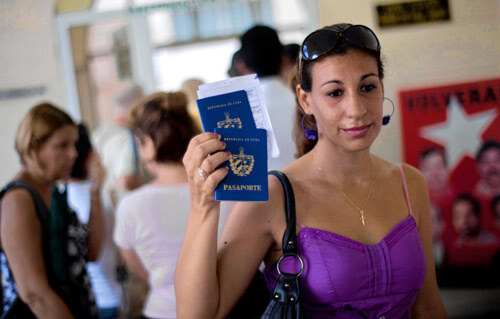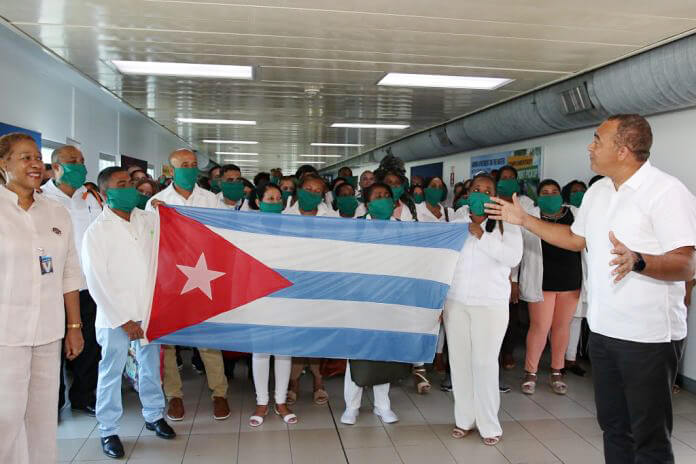The Cuban government said Tuesday that it was dropping exit permits for nationals travelling abroad.
But the decree, published in the official Communist Party newspaper, Granma, made it clear that the Raúl Castro administration will continue to decide who can leave the Spanish-speaking Caribbean island, as it has since Jan. 9, 1959.
The announcement stressed that any Cuban could be kept from travelling “when the proper authorities so decide.”
The decree said that, effective Jan. 14, Cubans will no longer need the exit permits and letters of invitation from their foreign hosts.
The changes also extend from 11 to 24 months the amount of time that Cubans can spend abroad before they are ruled to have officially migrated and lose benefits, such as health care.
The Cuban government said it retains the final say on who gets passports, claiming that U.S. migration policies that favor Cuban migrants “take away from us the human resources that are indispensable to the economic, social and scientific development of the country.”
The announcement said that supervisors must approve the issuance of passports to government and military officials, professionals, physicians and other medical personnel, top sports figures and others whose work is deemed “vital” to the state.
It also said that passports also can be denied to any Cuban “when it is so determined by the appropriate authorities for other reasons of public interest,” or when “reasons of defense and national security suggest it.”
In addition, the decree said that those who are subject to the military draft or have other unspecified “obligations” to the government are prohibited from obtaining passports.
The decree abolishes the reentry permit required for Cubans who live abroad and wish to visit the island, and extends the time they can visit from one month to at least three months per visit.
It said that those who “organize, encourage or participate in hostile actions against the political, economic and social basis of the state” will not be welcomed back.
Analysts say the migration reforms are the most anticipated of all the changes that President Raúl Castro has put in place since he took over from older brother Fidel Castro, temporarily in 2006 and officially in 2008.
The exit permit was required in 1959 initially to block the escape of officials and supporters of the Batista government toppled by the Castro revolution just nine days before.
The re-entry permit was required, beginning in 1961, to try to control the return of radical Castro opponents, analysts say.
Last year, Raúl Castro told the Cuban Legislature that the island’s migration policies needed updating, because those now leaving the country are “émigrés for economic reasons” rather than hostile exiles.
U.S. State Department spokesman William Ostick said the Obama Administration welcomes the changes since they favor human rights.
But he warned Cubans not to “risk their lives” crossing the Straits of Florida, noting that they still need visas to enter most nations.
Analysts say the new rules appear likely to allow more average Cubans — those without political or other issues pending with the government — to travel abroad more easily, stay out longer and return with fewer complications, costs and paperwork.
U.S. officials say more than 1 million Cubans now live abroad, mostly in the United States.
They also say about 7,400 Cubans without visas arrived in the U.S. in the one-year period that ended September 30.
All Cubans who step on U.S. soil can stay permanently under the Cuban Adjustment Act and the United States’ “wet-foot, dry-foot policy.”
Under the policy, Cubans who present themselves at the U.S. border can be paroled into the country and then become permanent residents a year later.
Since they arrived by land (dry foot), they are allowed to stay in the U.S. But if they were intercepted at sea, they would be sent back to Cuba (wet foot).


























